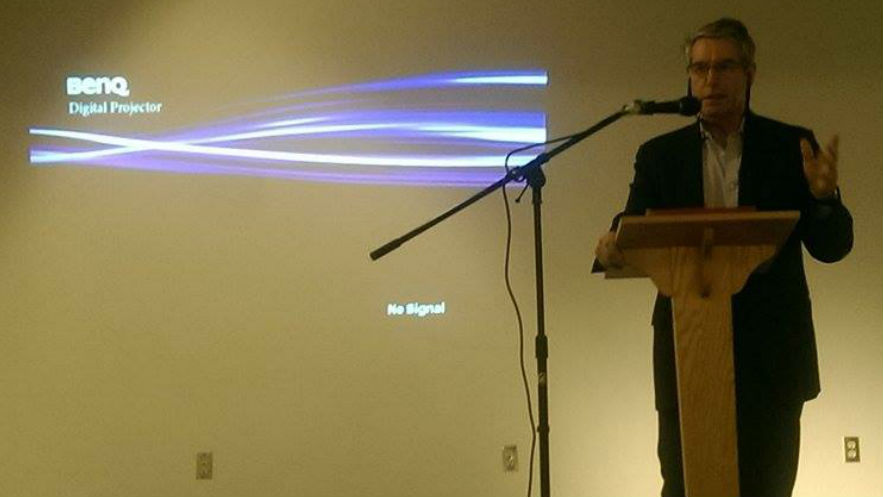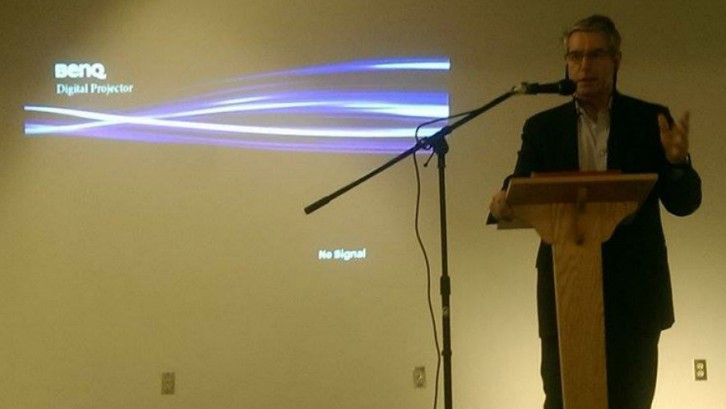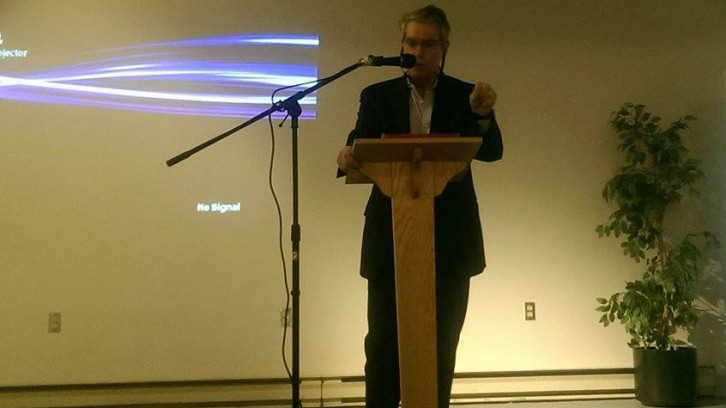Omar Khadr
Khadr lawyer says case is a ‘frightening lens into democracy’
Lawyer of former Guantanamo detainee Omar Khadr says Canadians face the prospect of a world of lawlessness if they are not vigilant

caption
Alberta-based Lawyer Dennis Edney giving his lecture at St. Mary's Boat Club.
caption
Alberta-based lawyer Dennis Edney giving his lecture at St. Mary’s Boat Club. Edney began his lecture by saying “hopefully by the end of my talk I will challenge you to question the concept and practice of justice.”The lawyer for high-profile former Guantanamo detainee Omar Khadr began his talk at the St. Mary’s Boat Club on Friday with a grim disclaimer.
“My story tonight will not be a very happy story, ” said Dennis Edney.
Edney gave evidence of this throughout his two-hour lecture titled, “The Rule of Law in the Age of Terror,” as he discussed his experience being the lawyer of high-profile former Guantanamo detainee Omar Khadr, continuously emphasizing that basic human rights and the justice system are in serious jeopardy.
Khadr was 15 when he was captured by the U.S intelligence service in 2002 in Afghanistan. After an interrogation that included different torture methods, Edney said Khadr was forced to confess to throwing a grenade that killed a U.S. soldier. The next 10 years of Khadr’s life were lived in a windowless, concrete building far away in a desert – Guantanamo Bay, Cuba.
Edney, who has worked on many high profile cases and has dealt with Guantanamo detainees before, was not prepared for what he saw and recalled his first time meeting Khadr as a young boy.
“I was no naïve individual, but I remember just gasping and it hit my moral compass. My kids are at home with their mother safe and here’s a child trying to keep warm and he was just so damaged. I can only describe him as a broken little sparrow. I went in as a lawyer and came out as a father,” said Edney.
Year after year, Edney said he always saw Khadr chained to the floor in a freezing room. Committed and determined to help the “child” Khadr was, Edney worked to decriminalize the boy, missing two of his children’s graduations in the process.
In 2012, Khadr was moved to a prison in Canada and in May 2015 the Alberta Court of Appeal, which refused to block his release as requested by the federal government, released 28-year-old Khadr on bail (pending an appeal).
“One of the reasons why I went often is because I knew the time he spent with me, he wasn’t being tortured,” said Edney.
According to Edney and claims made by former detainees in the past, the torture is unjustified. Khadr experienced sexual harassment, physical torture and humiliation.

caption
Edney said, ” The legacy of western colonialism in the Middle East leaves scars that have not been forgotten today.”Terrorism exploited
Edney stated that although terrorism does indeed pose a serious threat to human rights and should be dealt with seriously for the safety of citizens, he said that since 9/11, North America has used the ‘climate of fear and insecurity’ to justify long-standing human rights violations.
“Omar’s story provides a frightening lens into the future of democracy and the decline of the rule of law as we once knew it, unless we stand up and speak out,” he said. “Because if this could happen to a 15-year-old boy, it could happen to anybody.”
Edney said Khadr was “a child abandoned by Canada” and is still seen in the eyes of the former Conservative government as a terrorist and war criminal, which Edney said influenced Canadians to become apathetic.
“The word terrorist just frightens people without informing them with anything important. Our government has used the term subjectively for their own political objectives,” he said.
‘We have failed Omar’
Edney referred to the Guantanamo Bay prison as an offshore concentration camp and legal black hole, one that Khadr lived in for 10 years, even as a minor.
Edney is not the only one critical. Many human rights organizations, even the United Nations, have called into question the prison and its unlawful practices for years, but Edney believes it’s citizens’ responsibility to do something because we already “have failed Omar” as a nation.
“We cannot call ourselves a civil society when we allow a place like Guantanamo to exist without protest — it’s still there,” he said.
Edney reminded Canadian citizens not be frightened of challenging the government.
“Get up and do something. Knock on the door of a local politician and ask, ‘What do you stand for?’ Don’t be scared to question,” he said.
Dalhousie student Amina Abawajy is familiar with the injustice in Guantanamo and was still shocked with Khadr’s case.
“I think it starts with starting the discussion and making sure it’s on the table when it comes to politics, even school politics. It needs to be discussed,” said Abawajy.
Since bail, Khadr has been living with Edney and his family. Edney said that after all Khadr had endured and as they continue to fight his legal battle, “he’s a very special boy.”
Edney said he never thought that moral order would collapse and he feels there’s been a destruction of fundamental legal and constitutional principles that have been place since for many years.
“Look no further than Guantanamo Bay to understand how easy it is for a nation to fall into lawlessness,” he said, adding that “future generations will judge us for this – we have a responsibility.”

